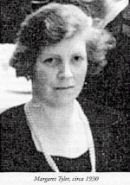Eyelids fester and become dry and cracked from the excoriating fluids. The stool is acrid and excoriates. There is rawness from acrid menstrual discharge and leucorrhoea. Wherever there is an ulcer the fluids that ooze excoriate the parts around.
It bleeds black blood, often fluid, that will not coagulate. Skin mottled, intermingled with great pallor.
It has violent action on the heart: there is violent, audible pulsation, worse for every motion. Strange that the ancients knew that Ammonium carb. would overcome difficult breathing from cardiac attacks. (When indicated, the single dose, very high, is enough.) He says, the ancients used Ammonium carb. in the low from of pneumonia: it had a homoeopathic relation to some of the cases. Once in a while they would cure the awful stage of prostration with heart failure at the end of pneumonia, and because they relieved such a one, it was established as a remedy for all future use.
It has a state analogous to blood poisoning (as in erysipelas, and malignant scarlet fever), with prostration and great dyspnoea, as if heart were giving out: with patchy surface, dusky and puffy face.
Enfeebled weak heart: absence of symptoms : lack of response to remedies. Patient has to lie in bed and do nothing, for palpitation and difficult breathing on motion.
Such a case, he says, furnished me much amusement for a year and a half. There was a woman, who answered this description. Her state was one of peculiar weakness with dyspnoea and palpitation on motion. I had been treating her, but had not fully studied the case, and as she did not progress, she was put under an able neurologist for a “rest cure”. She was to be well in six weeks, but as, then, she was worse than ever, a heart specialist was called in to examine her. The heart was not vigorous, but there was no organic affection. Then a lung specialist, and all kinds of other specialists, to investigate fully all her organs: but there was nothing the matter with them; yet the poor woman could not walk because of her sufferings and palpitating heart. After three months, steadily failing, Dr. Kent was called to see her again. The case was extremely vague, with nothing but those few symptoms. “Finally I settled on Ammonium carb., and she has been on this remedy for eighteen months: one dose helping her from six weeks to two months. She now climbs mountains, and does everything she want to do. This shows how deeply this remedy acts.”
Exhaustion, every M. P. An attack like cholera coming the first day of each M. P. There may be exhaustion with vomiting, coldness, blueness, sinking dyspnoea. (Veratrum)
Its asthma has this peculiarity, worse in a warm room, till suffocates; as if he would die for want of breath. Yet the headache and bodily complaints are worse from cold.
Bones ache: ache as if they would break. Teeth ache violently from change of weather, or of temperature in the mouth. Hair falls out; nails become yellowish; gums receded from teeth and bleed: scorbutic, or scrofulous constitution.
Hysteria: nervous women carry a bottle of ammonia hanging to their chain. A great similarity between the symptoms of this drug and snake poisonings–where it has a great reputation.
Many complaints from bathing.
In diphtheria and chest troubles, worse after sleep. (Very like Lachesis in many of its symptoms.)
Seems as if all her inner parts were raw and sore.
Full of catarrhal symptoms and cough; rattling of mucus all through chest. Oppression of breathing. A catarrhal dyspnoea. Hypostatic congestion of lungs: chest filling up with mucus difficult to expel. Coldness, prostration and weakness of chest.
Worse 3 a. m.; wakes with cold sweat and difficult breathing. Almost pulseless. Face pale and cold.
“Heart failure. Patient got on well, then the heart failed.” Here Ammonium carb., given in time, would save life.

